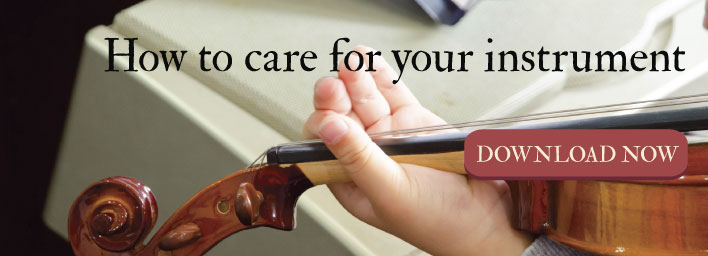Violin Practice Tips For Adult Learners

Adult music students often doubt their music abilities because they've fallen prey to certain myths, including the one that "childhood is the only time to learn musical instruments well..."
While it's true learning to play a musical instrument at a younger age has advantages, it's also true that the adult brain is able to form new neural synapses than scientists and medical experts once believed.
In other words, there's no reason you can't become a great adult violin player - whether you pick up the bow for the first time at age 30, 50, or beyond.
That being said, here are seven tips for adult beginner violinists that will enhance your learning experience.
1. Enlist the help of a private instructor
Many adults take advantage of local music school, Junior College or other community-based classes, to test the waters – evaluating whether the violin is the right string instrument for them.
This is a great idea since these group classes are affordable and designed around a traditional full-time work schedule. However, the infrequency of the classes (particularly those offered once-a-week) does not provide the level of concentrated instruction time serious violin students require in the long-run.
If you're committed to the violin, invest in private instruction. Many instructors will come to your home to make things easier for you. These 45 minute to one-hour long classes will feel like a few weeks-worth or more of the teacher-diluted group instruction you're accustomed to, allowing you to obtain more personalized feedback about your technique, insight into the most inspiring music selections for your taste, and an ability to stretch yourself beyond what group classes offer.
2. Make shorter practice sessions count
Let's face it, between work and family time, most adults simply don't have time to put in the traditional 30- to 60-minutes per day to practice. That means you have to make shorter, more infrequent practice sessions count.
Record private lessons and play them back in the car or during your workout to remember the exact items your instructor recommended for improvement. Then, using a mirror and your ear - work in a concentrated way on those points to make quicker progress in the areas where you need it most.
3. Use online violin apps
Online music apps have come a long way and some of them are designed especially for the violin. If private instruction is outside the budget, take advantage of good music apps to gain extra support, accessing tips, video lessons, sheet music, violin-specific exercises, and so on.
Read, Newest Apps for Learning to Play the Violin, for proven suggestions.
4. Practice during your lunch hour
Are you able to eat at your desk or sneak smaller, healthy snacks throughout your workday? If so, consider using all or part of your lunch breaks for practice time. You may have to sit inside your car to do so, if your work space doesn't have the right practice area onsite, but every little bit helps and these practice sessions will pay off.
Even if you aren't able to play during this time, practice fingerings on your desk or pull-out sheet music and grab a starting note from an online app to work on sight-reading and rhythm. The more the notes, rhythm, and basic music theory infuse into your cells, the more it will show in your playing.
5. Trade a vacation for music camp
Think music camps are only for kids? Not so. There are multiple music camps across the country that cater to adult string musicians just like yourself. It's a great way to glean instruction from some of the greatest musicians out there, not to mention surrounding yourself with other adult peers who are novices on their instruments too.
Consider saving some vacation days this year, get out of the normal vacation routine, and attend a string music camp instead. Read, Recommended Summer String Music Camps for Children and Adults to review some of our top recommendations.
6. Play with your kids
Are your kids learning to play instruments? Why not play with them - ensemble style? Even if you play at different levels, practicing violin with your child and their instrument is a great way to develop improvisational skills - not to mention set a great example by making practice a priority while keeping it fun and creative to boot.
7. Don't give in to the, "I'm too tired..." line
If you succumb to the idea that you're too tired to practice, you'll lose momentum quickly. If nothing else, take the violin out for 5- or 10-minutes to practice scales or a few measures of new music. Even that little bit is exponentially better than nothing.
Congratulations on debunking traditional myths and pursing your musical dreams as an adult. Now, take practice one-step further to make it work in your favor.
Sponsored by Thomastik-Infeld


